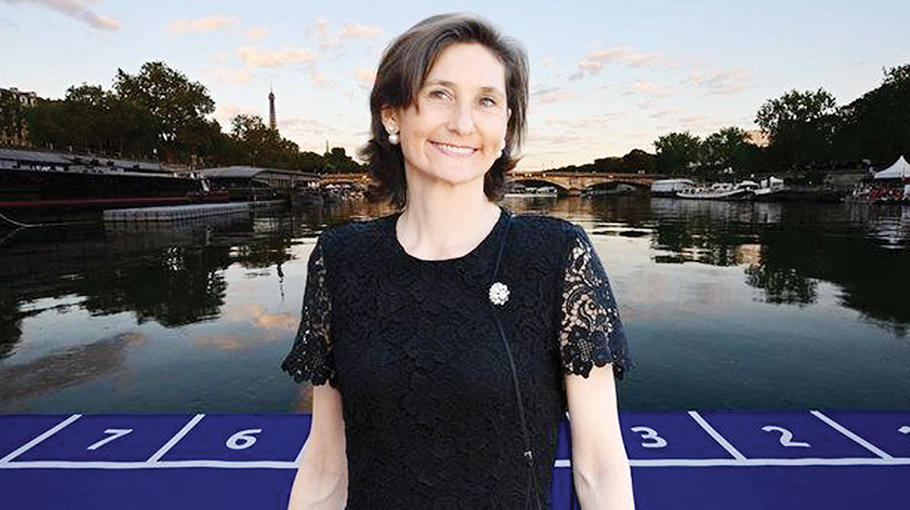French sports minister swims in Seine

French Sports Minister Amelie Oudea-Castera swam in the Seine on Saturday, raising hopes that the river will be clean enough for competitors at the Paris Olympics, which start in less than two weeks.
The 46-year-old was joined by para-triathlete Alexis Hanquinquant, who will be France's flag-bearer at the Paralympics opening ceremony on 28 August.
Oudea-Castera, dressed in a bodysuit, slipped as she entered the Seine but managed to outshine Anne Hidalgo, the mayor of Paris, with whom she has notoriously poor relations. Hidalgo had previously announced her intention to swim on 17 July if the water quality was good enough.
Paris city hall declared that the Seine had been clean enough to swim in for most of the past 12 days. City hall official Pierre Rabadan told broadcaster RFI that the water quality met the required standard for "11 or 10 days" out of the past 12.
The Paris region has experienced an unusually heavy amount of rain in recent weeks, raising the Seine's pollution levels as untreated sewage is washed into the river."I was never worried about the quality of the water or the organisation of the events," said Alexis Hanquinquant after his swim in the Seine with the Sports Minister.
"We hope the weather will get a little better, but we are not worried about the possibility of holding the competitions," Rabadan said. "They will take place." He added, however, that there might have to be "modifications," without providing details.
Weather permitting, the river will be the star of the opening ceremony of the Olympics on 26 July and will host the triathlon and open water swimming events. The weather in Paris is forecast to be mostly dry over the final 14 days before the start of the Games.
French authorities have invested €1.4 billion over the last decade in efforts to clean the Seine, which will host a landing taxi pad. These efforts included improvements to the Paris sewerage system and the construction of new water treatment and storage facilities. These initiatives appear to be bearing fruit just in time for the Games. A new stormwater control station at Champigny-sur-Marne filters and cleans rainwater to prevent pollution, while a massive stormwater cistern near Austerlitz station, capable of holding 20 Olympic swimming pools worth of water, acts as a backup to prevent sewage overflow into the Seine. The Seine is scheduled to be used for the swimming leg of the triathlon on 30-31 July and 5 August, and for open-water swimming on 8-9 August. The city's commitment to ensuring a clean and safe river for these events underscores the significance of the Seine as both a cultural icon and a vital part of the Olympic Games.





